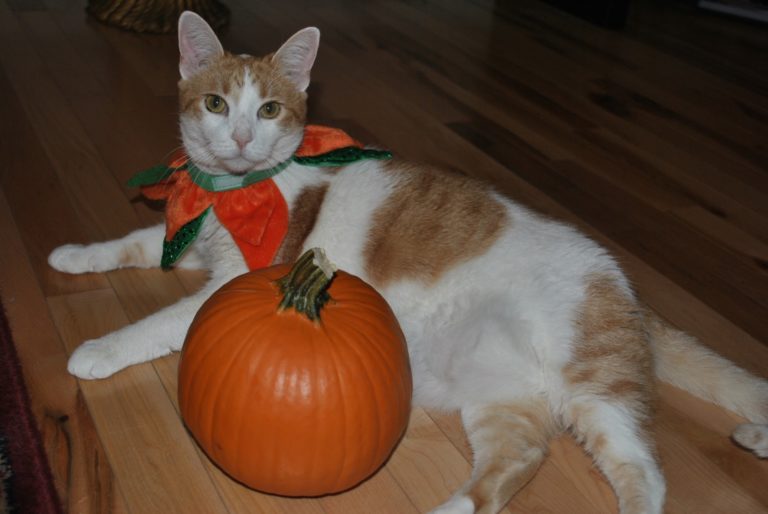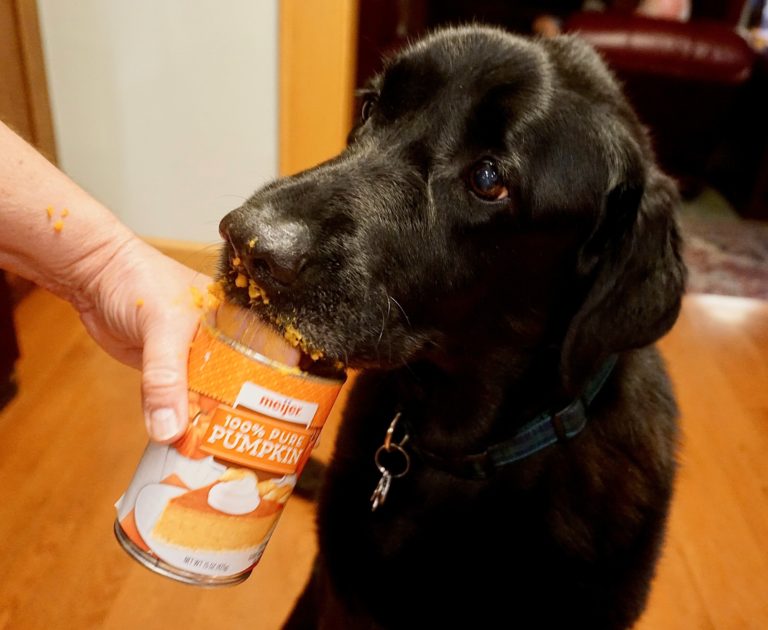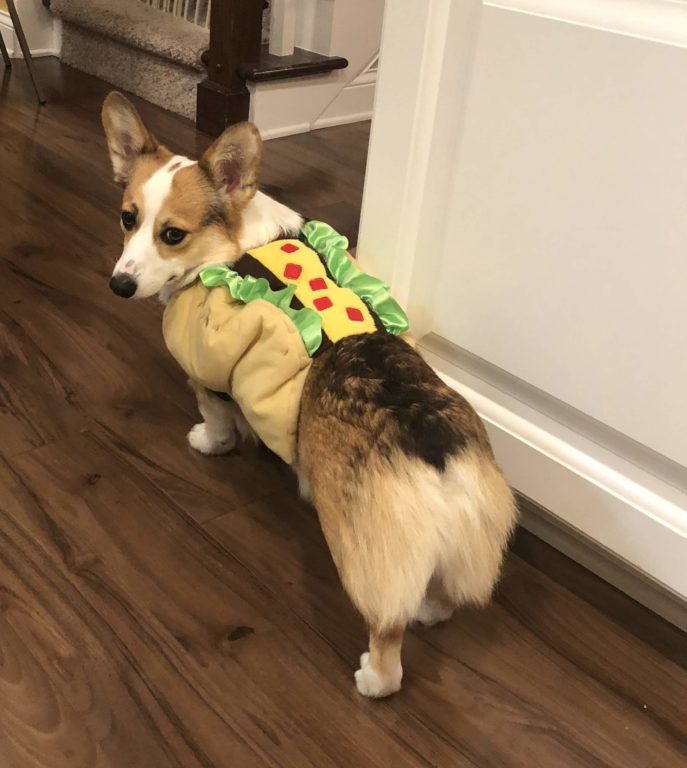
Fall is a festive season but can also be a bit of a tricky and scary time for pet-owners. Wondering how you can keep your dog safe this Halloween? Unsure about what to keep out of reach of your cat? Let’s play a game of Trick-or-Treat while MedVet’s team of board-certified veterinarians share their expertise on how to keep pets safe this fall.
Guess if the food listed is a treat that’s safe to give your pet or if it’s a trick, meaning something harmful you should not give to your pet. Click to find out the answer.
Grapes
Trick or Treat?
Raisins
Trick or Treat?
Pumpkins
Trick or Treat?
Chocolate
Trick or Treat?
Sugar-free Candy
Trick or Treat?
Apples
Trick or Treat?
Peanut Butter
Trick or Treat?
Answers:
Grapes: Trick
Even a small amount of grapes can cause a cat to show symptoms of lethargy, diarrhea, abdominal pain, and decreased urination. It can even cause kidney failure in dogs and cats. Each pet reacts differently to grapes and the exact toxicity levels are unknown. We recommend avoiding grapes all together.
If your pet eats a grape-flavored product (found in some pet products and synthetic grape-flavored medications) no need to worry, that’s not toxic. Most products are made with diluted grapes, not enough to cause concern.
Back to top
Raisins: Trick
As with grapes, raisins are unsafe for cats or dogs. Raisin toxicity can cause severe kidney damage leading to acute kidney failure with lack of urine production. If your pet has consumed raisins, they might show symptoms of vomiting, diarrhea, dehydration, foul breath, lethargy, or loss of appetite. Make sure to keep raisins in a sealed container in a locked drawer or pantry, out of reach of your cat or dog.
Pumpkins: Treat
Both raw and cooked pumpkin is safe for dogs and cats. Pumpkin is a great source of fiber and can help relieve constipation and diarrhea. Adding a tablespoon of pure pureed pumpkin to a pet’s regular food can be beneficial for pets with upset stomachs. But, do not give your pet the leftover jack-o-lantern or the pumpkin stem, skin, or pulp. Pumpkin stems and leaves are covered in little sharp hairs which can cause irritation in your dog’s mouth and intestinal tract.
Chocolate: Trick
Chocolate can be poisonous for both dogs and cats. Even in small amounts, chocolate can cause serious health problems if ingested by your pet. Chocolate toxicity can result in vomiting and diarrhea in addition to tremors, increased heart rate, heart failure, seizures, and in some cases, death. Generally darker chocolates are more dangerous than milk or white chocolates. Keep your candy baskets and trash out of reach of sniffing noses because chocolate candy wrappers can also be a serious hazard.
Sugar-free candy: Trick
Sugar-free candies contain a chemical called xylitol, which is harmful to pets. This artificial sweetener is highly toxic to dogs and can cause low blood sugar and liver failure. Xylitol is found in some chewing gum, mints, baked goods, cereals, jellies, jam, pudding, toothpaste, and mouthwash. Always read the label carefully because you’d be surprised what products have xylitol in them. The effects of xylitol in cats are not fully understood so we recommend not giving your cats sugar-free candies.
Apples: Treat
Apples are an ideal snack for pets. Apples are a good source of antioxidants as well as Vitamins A and C. They are high in fiber, which can help with a dog’s digestion. They are great for overweight or geriatric pets who may have a lower metabolism. Make sure to remove the leaves, core, and seeds from the apples because they can contain cyanide. Also, be sure you’re using fresh apples. Consuming rotten apples can be harmful to dogs.
Peanut butter: Trick or Treat
This answer is a bit more complicated. Most dogs absolutely love peanut butter. However, make sure the peanut butter doesn’t contain xylitol, which is a chemical that’s highly toxic to dogs. Look for unsalted peanut butter with no added sugars. Peanut butter can be a great treat, high in protein and healthy fats. Like with any treat, make sure to give peanut butter in moderation.
Cats, however, should not be given peanut butter. Although it’s not toxic, it also doesn’t provide them any nutritional benefit. Your cat is a carnivore that wants to eat animal-based protein, not a plant-based protein, like peanut butter.
Make food in your kitchen is stored out of your pet’s reach. To discourage pets from exploring in the kitchen, don’t feed pets table scraps or allow them on the counter.
If you suspect your pet has eaten any of these Tricks, call your family veterinarian right away or find your nearest MedVet.
Additional Emergency Pet Care Articles that may be of Interest:
- Is Ibuprofen Toxic To Dogs?
- Super Toxic Levels Of Xylitol Can Be Found In Chewing Gum
- Heatstroke In Dogs
- Grape Juice – Is It Toxic
- Foods To Avoid, And Others Pets Love
- Important: Other Sources Of Xylitol To Dogs
- Marijuana Intoxication In Dogs And Cats
- Dogs Beware Of Xylitol- Toxic Ingredient In Some Peanut Butters



